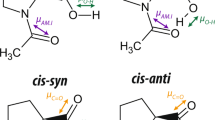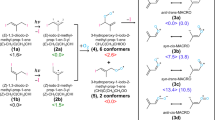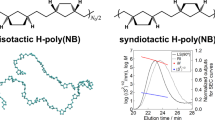Abstract
IT is usually supposed that free acyl radicals do not survive the shock of thermal or photo-dissociation of the molecule from which they might be formed or, if formed, decompose further before they can react with other molecules to give rise to isolable products. Thus Rice has shown that no diacetyl results from the thermal decomposition of acetaldehyde1, and Norrish has concluded as a result of his studies of the decomposition of aldehydes and ketones that both of the bonds between the carbonyl group and the two groups attached to it are broken practically simultaneously, the two groups then, in general, uniting to form a saturated paraffin2.
This is a preview of subscription content, access via your institution
Access options
Subscribe to this journal
Receive 51 print issues and online access
$199.00 per year
only $3.90 per issue
Buy this article
- Purchase on Springer Link
- Instant access to full article PDF
Prices may be subject to local taxes which are calculated during checkout
Similar content being viewed by others
References
F. O. Rice, Trans. Far. Soc., 30, 168; 1934.
Kirkbride and Norrish, idem., 27, 407; 1931.
Haber and Willstätter, Ber., 64, 2844; 1931.
Taylor and Gould, J. Phys. Chem., 37, 367; 1933.
Damon and Daniels, J. Am. Chem. Soc., 55, 2370; 1933.
Author information
Authors and Affiliations
Rights and permissions
About this article
Cite this article
BARAK, M., STYLE, D. Stability of the Acetyl Radical. Nature 135, 307–308 (1935). https://doi.org/10.1038/135307b0
Issue Date:
DOI: https://doi.org/10.1038/135307b0
Comments
By submitting a comment you agree to abide by our Terms and Community Guidelines. If you find something abusive or that does not comply with our terms or guidelines please flag it as inappropriate.



